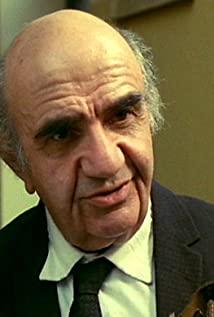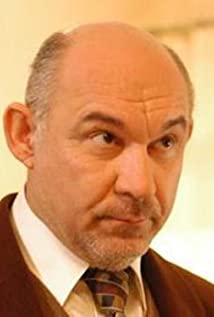The philosophy of the 20th century was occupied by three men: Nietzsche, Marx, and Freud. Nietzsche's will to power, Marx's historical materialism, Freud's unconscious, they went from doubting to breaking traditions, liberating people from thousands of years of mythological history - it can't be said to be complete, it can only be said to be seismic collapse. The one thing they all have in common is skepticism. Hence the philosophical critique. For thousands of years, the rule of myth and the rule of morality have had the premise of "necessarily correct". All the highest literature and art are related to religious morality, and it seems that once people are separated from them, there is no order at all. "Relationship with people" has been tacitly established on the premise of the moral tradition formed on the basis of such myths, and the moral issues discussed in philosophy seem to have a lot to do with it. And existentialism is to destroy this premise and let people come out of it. Nietzsche said, rebuild the world from the ruins. And the first step is destruction - disintegration. The disintegration of traditional morality also means the shattering of myths. Everything has the possibility of reconstruction, but what attracts the most attention is people themselves - where should we go? Existential films born on such a historical basis can be roughly divided into three categories: the first category is the nothingness after disintegration, and the endless despair on the ruins. The second category is the desire to return after the disintegration, revealing the ugliness of the lost faith after the disintegration, and longing for the original myth and morality. The third category is that there is no position between freedom and morality, some facts are shown, and there is more space to think about choices.
We will find that the changes in film themes before and after the French New Wave, and the discussion of the diversity of personal existence after the New Wave is more concentrated - the history of film is called the pre-Godard and post-Godard eras, and it is not unreasonable. And mainstream Hollywood movies only caught up with the new wave after the 1970s. Discussions on freedom are mostly based on the premise of “democracy”—most modern people use freedom and democracy as the same thing. These are all manifestations of misunderstanding existentialism. However, after the World War, Nietzsche's ideas were divided into left and right schools to study, so such prejudice is inevitable. Therefore, the freedom discussed in most films is actually biased. But that doesn't stop us from thinking about what a human being is. Freud's unconsciousness makes people fully aware of the world outside of consciousness, and we have to imagine the reconstructed drawings in the ruins. Moral disintegration and self-seeking are the themes of the 20th century. It can be summed up in a simple way that existential films are actually films of freedom and moral criticism. In "The Ten Commandments", we can clearly see the director's intention.
The "Ten Commandments" come from the content of Jesus' Ten Commandments: first, only the true God, second, do not take the Lord's name in vain, third, keep the Sabbath holy, fourth, respect your parents, fifth, do not murder, sixth, do not commit adultery, and seventh, do not steal 8. Do not give false testimony to harm others, 9. Do not covet your wife, and 10. Do not covet your neighbor's property. The biggest difference between the Ten Commandments of Jesus and the Ten Commandments of Moses is that Jesus wants to save all living beings from the heart out of love; Jehovah controls violence with violence, so the Ten Commandments of Moses are more like the law. It can be seen from Kieslowski's "Ten Commandments" that he is more inclined to be spiritually oriented.
The first commandment, only the true God. The story is very simple. It is about a father and son who love science. The father instills the concept of life in the child's hands. On the question of what death is, the father's answer is biological, but the father's sister insists. There is a religious view. The film uses the accidental death of a child falling into an ice cave as an argument with his father-indeed, how fragile life is, there may be control over us within the scope of our control. The freedom that is popular under the disintegration of traditional myth and morality is more a rational freedom, which exaggerates one-sidedness. In the end, the father realized that existence is not something that science can grasp. His confession and his cry, did God hear it? The first short film obviously has the taste of criticizing the reality of "myth and betrayal". He may not agree with traditional morality, but he is more yearning for this kind of spiritual belonging, which is very similar to Tarkovsky. God is not only more than Ideology is that simple.
The second commandment is not to take the Lord's name in vain. The second part tells the story of a doctor and a patient couple. The man is seriously ill and has no hope of dying, while his wife and his partner get pregnant. So the question arises, whether to keep the child or not? The wife wanted the exact answer to whether her husband would die or not, and the doctor finally told her: he would die, do not have an abortion. However, after the doctor declared his death, the man miraculously survived. Perhaps the line that the doctor said at the end of the film, "We also experienced that what we treat is not an X-ray film", briefly but infinitely shows that what we think is certain is not necessarily certain, and miracles will always happen. Disintegration destroys not just faith, but hope—the prevalence of nothingness. The disintegration of one belief, the rise of another - nothingness. We have to choose to belong to something, so is it nothing or God? However, the wife's behavior gave people another level of reflection, and the torment she suffered came from morality. And the man responded to this moral torment with the sentence "We have a child": Morality becomes torment because it does not come from the heart. In the end, the doctor nodded in the line "Do you know the meaning of a child", which gave us infinite reverie. Morally, children should not exist, and a devout Christian doctor should not judge the life and death of a patient, but the doctor finally made a judgment for the sake of life. But isn't it the best ending? We keep the heart, not empty words. This may be a symbol of the disintegration of morality and the formation of a new morality.
The third commandment is to keep the Sabbath holy. The story tells the story of a woman who was lonely and cold on Christmas Eve. She found an excuse to find her husband and pulled her ex-boyfriend out to accompany her. During the search process, she gradually revealed the information about their past affair and choices. Finally, the two went home separately. The whole process is centered on "home", and the process of seeking for men and women is the process of belonging. In the end, men indicate the completion of their own way of belonging with "no longer". The so-called Sabbath observance actually refers to the responsibility and belonging to the family. Kieslowski likes to use the psychological process of the characters to complete the elaboration of grand themes, such as the blue, white and red trilogy. The existentialism of myth’s betrayal makes us feel homeless, detached from the world, indulged in the city of desire, and even shows our contempt for traditional morality. Do we need to accept this total denial of tradition? Or should we save with tradition? Perhaps, denial will become another ideology that will eventually rule our lives.
Fourth Commandment, Respect your parents. The film tells the story of a father and daughter who admire each other. Because of a letter left by their deceased mother, the two experienced a psychological journey, and finally ended with a letter burning. The daughter's typical Electra complex, and the father's change from revenge to love, this one is different from the first three, with obvious moral criticism. Since history, morality and instinctive desire seem to be at odds. In this way, the extreme of moral criticism is to admire the other end of morality, instinctive desire. The so-called moral criticism has become the affirmation of instinct, and existentialism also strongly supports this "life denial". Two people who are not related by blood may be hindered by the name of morality, but I know that the film is not just about moral criticism, but the choices made under this criticism. We cannot deny this instinctive love, but we also cannot deny the convenience that morality brings us. Isn't the problem-solving and reconstruction of morality the same as the establishment of the morality of money for thousands of years? Respecting the morality of our parents is always at odds with instinctual curiosity. When we steal privacy, we are often stimulated and fearful, as if a pair of eyes are watching us. But is there such a possibility that the two want to merge to achieve a balance?
The fifth commandment, do not murder. The difference between the rule of law and the rule of man is that one is revengeful and the other focuses on spiritual transformation, which is similar to the situation of the Ten Commandments of Moses and the Ten Commandments of Jesus. The film tells the story of a murderer who is tried and sentenced to death. On the other hand, the motive for murder and the behavior of the world do have a transformable nature, but unfortunately, the law stipulates that murderers should be sentenced to death. After the disintegration of morality, the so-called democratic freedom is maintained by the rule of law, but this freedom has moisture. In the past, we could redeem our souls through faith—the misunderstanding here is that the redeemed souls are not to forgive themselves, but to carry out the same love as Jesus from now on—but the current law is based on intimidation and deterrence. The pleasure of revenge cannot achieve the result of spiritual redemption and transformation. The disintegration of morality allows us to see more indulgence of unrestrained desires, which makes people doubt the so-called existentialism, refreshes the lower limit of human freedom, and even misses the restraint of morality. Like the philosophical conundrum of whether suicide is justified, morality and moral disintegration thus conflict and contradict. Are we being too radical in our moral critique, or is that what revolution needs?
The sixth commandment, do not commit adultery. The previous one was about the ethics of love—what to love, and this one is about the practice of love—how to love. A post office man falls in love with a sexually indulgent woman and peeks into her nightlife from a windowsill every night. When the woman finds out about this behavior, she scolds the man as a pervert. However, he took the man home after that, and the sex failed. The man fled and committed suicide in the bathroom. Finally, the recovered man stopped peeping at the woman. How to love is also a philosophical problem. Whether it is a single person or a person who has an object, very few people can be open to the outside world like Sartre and Beauvoir. In traditional morality, the openness of love means adultery, and in ancient times, being stoned to death is one reason why people with an attitude of sexual freedom attack morality, so-called sexual repression. The dilemma facing moral disintegration is how to love. Because the residue of morality and the immaturity of moral criticism are all in the shape of our view of love. Kieslowski's ending with a man no longer loving a woman is actually showing that his love should belong, the only love. But after all, the relationship between love and sex is not the same. Putting sex into love means that only those who belong to love can have sex. The rise of existentialism's denial of existence has made more people lack love and become rich in sex. This can be said to be an instinctive discovery, but it can also be said that this is a ransom that is equivalent to sexual repression. How to love? Psychological process and physical desire are still fundamentally different. It is not so much a moral critique as a nostalgia for belonging.
The seventh commandment, do not steal. The great event of the twentieth century was the rise of the nihilistic existentialism of the two world wars and the groups that followed them, to which the country of Poland has always suffered. Poland's recent history is unremarkable, and the film's theme of theft can also be interpreted as an indictment of the former Soviet Union's control of Poland. From a moral critical point of view, stealing is an expression of individual free will, but excess is lonely. From a traditional moral point of view, stealing is immoral, and such behavior will be condemned by God. It is very interesting that we see the prototype of tragedy in this film, the confrontation between morality and freedom. Tragedy ends with the punishment of men, just as Oedipus was exiled. But the director gave a Hamlet-like cry: Why morality? But in the end, it ends with the mother losing her daughter, which has the temperament and content of tragedy. The film tells the story of the daughter who took her own daughter who was occupied by her mother. During the escape process, the daughter's suffering and the younger daughter's psychological change were finally found. The mother found them, but the daughter ran off on a train and left them. Both are thieves, the mother is moral and the daughter is legal. Whose stealing is justified? This is a confrontation that is common in moral disintegration, from which tragedy is often born. We can't judge who is right, but their endings give us a sense of horror - isn't that what the director wants to convey? Man-made is ultimately no match for "Destiny", life is not controllable, we need spiritual transformation, not superficial freedom.
The eighth commandment, do not bear false testimony. In Western legal and political films, we can often see that witnesses need to put their hands on the Bible to swear when they provide evidence, which shows the wide influence of morality. But with the disintegration of morality, this kind of spiritual constraint collapses. When people come out of mythology, how should we reconstruct them? The film tells the story of a Jewish woman who returned to Poland to meet the couple who saved countless Jews, but her heart was that they did not save her. After a round of rhetoric, the truth came out. It turned out that the couple did not save her because they wanted to save more Jewish children. The moral conundrum involved here is the irreconcilability of faith and protection of life. Because to protect life you have to lie to God. However, just like the difference between Moses and Jesus, there is a big difference between sectarian belief and spiritual belief, and the old lady belongs to the latter, so the so-called perjury cannot be mentioned, but only to illustrate the importance of spiritual morality. The tragic event of the Jewish massacre is due to the collapse of moral disintegration and belief, and the most direct result is the enhancement of individualism, just like the Jewish heroine, asking the old lady why she didn't save her back then. In the choice of Jewish groups and Jewish individuals, the old lady chose the group, but what she finally showed was that the individual is equally important-isn't this a new form of morality after acknowledging the negative side of life? Moral criticism lies in the hypocrisy and rigidity of the superficial ideology, but in the disintegration, what also makes us think is, in such a disaster, what else can we escape except the faith of the heart?
The ninth commandment, do not covet a wife. It tells the story of the love between an impotent husband and an cheating wife, whose love finally overcomes physical needs. There have been several chapters about love. The difference between this one and the previous commandment about love is not to commit adultery is that this is about what love is. When this love encounters the impediment of being unable to have sex, the instinctual desire for sex, the physical need, stands up as an accomplice. At this time, there is no morality at all, only desire. And the result of this is a lack of love. Indeed, now that sexual repression is gradually lifted, the definition of love is becoming more and more blurred. Although this film tells the story of a man and a woman's love, how should we define Christ's love by extension? Undoubtedly, moral disintegration makes all existing nouns lose their meaning. The reconstruction of this value is not bad, but in the process of reconstruction we have lost the love that has always been needed by nature and any ideology needs. The suicide of a husband, the loss of a wife's trust, is a microcosm of humanity freed from myth, and things like this will continue. what is love? It is the communication and tolerance of the mind. The so-called mind is the mind and the spirit. How can the communication without mind be maintained? This is the foundation of trust, and our loss of trust mirrors our loss of faith.
The tenth commandment, do not covet your neighbor's property. It's the only commandment with a comical twist, and the ending is helpless but hilarious. The film tells the story of the brothers who discovered the value of their father's stamps after the death of their father. In order to obtain the sky-high money, the brother even lost a kidney, but in the end they found that they were all cheated by the liar, and the brothers returned empty-handed. . The brothers were deceived because of greed, and the elder brother was even worse, and he also lost a kidney. This is a very realistic result of desire. But the other side is also telling us that money is an external thing, and only the most real feelings are the feelings of the brothers. Moral criticism involves the loss of feelings, people become more self-centered, and everything is self-interested, and this is the factor that makes people more lonely and contrary to the laws of nature. Here, everything becomes less important, and human relationships are as cold as machines. Not to mention the love that circulates in morality. But what we cannot deny is that the love under the moral ideology for thousands of years is too superficial, and the moral criticism of existentialism is undoubtedly a major reminder of such love. So it is not so much Kieslowski's nostalgia for morality as it is for genuine love. It is like the contrast between sectarian beliefs and heart beliefs.
Kieslowski's "Ten Commandments" is more inclined to the third type of existentialist film, which makes people think and has endless aftertaste. The Ten Commandments are a reverberation of the twentieth century, like the rules of art he adheres to. But what we do know is that the rules are always changing, and the things behind the rules, like love, are always the same. The Ten Commandments are the remnants of morality, but also the adherence to art and everything in the world. In contrast, today, in the fragmented morality, in the so-called legal democracy and freedom, we can see the faces of greed and loneliness.
In the betrayal of myths, people walk out of ideology, and the disintegration of morality seems to allow people to achieve true freedom. But what really has to do with freedom is desire. When people realize the negative side of life, they are chaotic and indulgent. Under the maintenance of the so-called law, we see more things that violate the freedom of life. Kieslowski's use of the Ten Commandments to talk about moral problems is actually to express the importance of spiritual beliefs in today's existentialism. At the same time as the moral critique, the moral residues are exerting their residual heat to save the ongoing disaster. You can't say who is right and who is wrong, because what philosophy presents is indeed our question for thousands of years, and life's example gives us another answer. As Marx said, man must be in relation to man and society, and these relations are the reason for our confusion. The only thing we can do, it seems, is to lessen our desires.
We will have a new Ten Commandments, and what kind of world are we rebuilding here?
View more about Dekalog reviews











